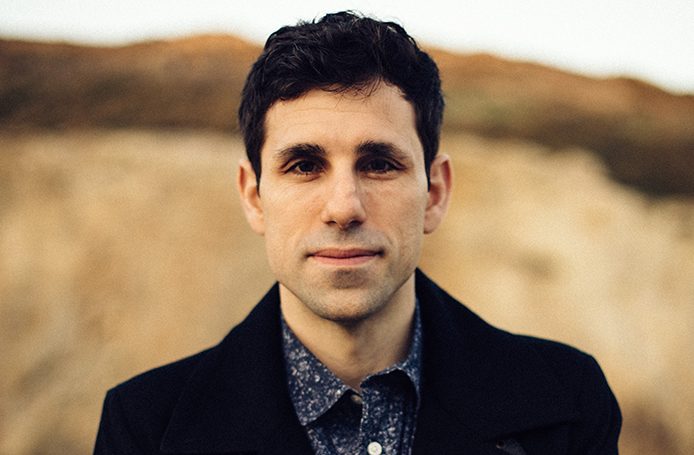We interviewed César de la Fuente, a Galician biotechnologist based in the United States, who has been named the “Best Young Researcher in the U.S.” by the American Chemical Society.
First of all, congratulations César! Recently, the prestigious American Chemical Society (ACS) has awarded you the New Investigators Award presented by its magazine ACS Infectious Diseases, specialized in the study of infectious diseases.
Thank you very much!
Due to SARS-CoV-2, there’s been a lot of talk about viruses lately. Although you’ve been involved in some detection projects, your main focus is on bacterial resistance to drugs. What are the objectives of your studies?
Exactly. Our main objective is to develop new computer-designed diagnostic tests and antibiotics. Drug-resistant bacteria constitute a silent pandemic. Their incidence continues to rise, and we must be prepared to prevent something similar to the current pandemic. We want to develop cheap and rapid diagnostic tests to detect infectious diseases and antibiotics to treat them.
Drug-resistant bacteria constitute a silent pandemic.
Currently, the spotlight is on viruses. Is bacterial resistance one of the latent dangers of this century? Are we, as a society, paying enough attention to it?
Indeed, bacterial resistance is one of the latent dangers of this century. The life expectancy before the discovery of the first antibiotic, penicillin, was about 30 years. Antibiotics have doubled the time we live. They are the most important medicine in the history of humanity. However, we haven’t discovered new classes of antibiotics for several decades, and bacteria have become increasingly resistant. We are on the brink of a post-antibiotic era.
Some news headlines talk about superbugs, which are responsible for a significant number of deaths each year. What is the real scope of this problem? Is there an issue of us “being late” in addressing it?
It is predicted that by the year 2050, 10 million people will die each year from infections caused by superbugs. This corresponds to one death every 3 seconds. We must do everything possible to prevent this. We know what the problem is, and we must address it.
Regarding bacterial resistance to antibiotics, what role does biotechnology play as a tool in proposing solutions?
Biotechnology plays an essential role because solving this globally significant problem will require the creation of technologies for designing and discovering new molecules to combat superbugs.
Coming from a scientific background, how do you approach management responsibilities? Is there a need for management training in scientific careers?
It is a fundamental skill. Leadership is also important. Ultimately, in a laboratory, you have a team of highly qualified people, and it is essential to create an environment that promotes constant idea interaction.
It is predicted that by the year 2050, 10 million people will die each year from infections caused by superbugs. This corresponds to one death every 3 seconds.
Despite the distance, you claim to closely follow the research being conducted in Galicia. What is the real level of research in our community?
Galicia is a land of great talent, creative people, and determination, which are fundamental characteristics for science and innovation.
How is Technology Transfer managed in your organization?
At UPenn, we have an office dedicated exclusively to this. We are in constant communication, and they are always aware of what is happening in our laboratory. This makes it easy to patent the new technologies we generate, which can then be licensed to companies for commercialization or result in startups.

Do you think technology transfer in Spain is up to the level of the science it produces? What does Spain need to position itself at the socio-economic level?
I believe more needs to be done. It is essential for universities, for example, to have offices that promote patenting inventions that come out of the laboratories.
Your career is marked by success, with recognitions from the Massachusetts Institute of Technology (MIT) and the Langer Innovation Award. However, in the scientific field, there are many obstacles. Have you faced difficulties? Do you learn from them? What drove you to keep going?
Certainly. In science, almost everything is “failure.” Most experiments don’t work, and most projects we propose aren’t funded, etc. It’s a career of constant failures. That’s why science and innovation are so special. Each failure provides an opportunity to learn and improve. It is essential not to view these failures as something negative or the end of the world but as a normal part of the learning process. The same applies to the educational process. We are taught more to answer questions than to ask questions, to get everything right the first time instead of making mistakes, getting up, and truly learning.
We would like to hear about your professional progression to get where you are today.
I studied at Eusebio da Guarda High School. I then pursued my Bachelor’s degree in Biotechnology (first promotion) at the University of León. Afterward, I completed my Ph.D. at the University of British Columbia in Vancouver, Canada, after which MIT recruited me. Now, I have been a full professor at the University of Pennsylvania (UPenn) since 2019.
#WithoutScienceThereIsNoFuture. What does science need to position itself as it deserves in society?
Real investment is needed. In the long run, it is a very clear and low-risk investment. But it needs to be a genuine commitment. The future of the economy will revolve around new technologies, including biotechnology and artificial intelligence.
At ingenyus*, we advocate for the beauty of science and the importance of communication. However, we understand that making it attractive and understandable is not easy. Is it society moving away from science, or is it science not connecting with society?
I believe scientists have a responsibility to communicate what we do. In my laboratory, many of the projects we have are funded through taxes paid by citizens. The least I can do is communicate to those citizens what we have done with their money and what it has been used for. Traditionally, we have not been good communicators, but I believe this is beginning to improve. It is important for society to connect with science because it is absolutely fascinating. Everything that happens around us, from how trees produce oxygen thanks to the sun, to the processes required to keep the human body healthy, etc., seems like science fiction. But it is not. It is incredible, and citizens cannot afford to miss out on this.
What would you say to students who dream of a career in research?
I would encourage them to dive in. It is a fascinating world. A world without monotony where every day is an adventure.
The last question is about homesickness. Do you miss Coruña? Have you considered returning?
Certainly. Homesickness is a feeling that has always been there, and I believe it always will be. I return to Coruña every year (well, this year was complicated due to COVID-19), and I enjoy the food, friends, and family very much.
© Diana Fontenla / Sampson Wilcox




